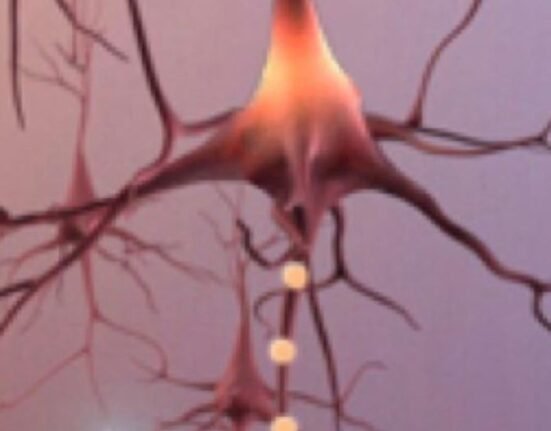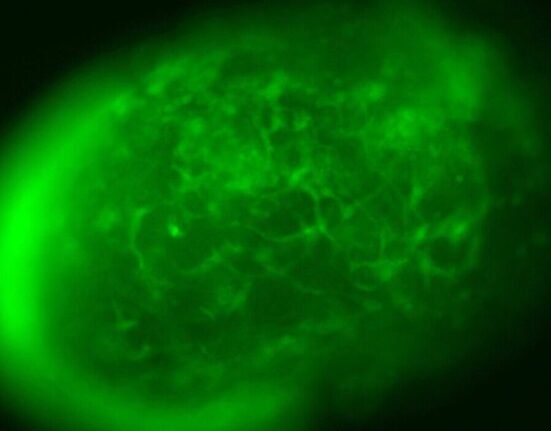HQ Team
May 18, 2025: The US Food and Drug Administration has granted marketing access to Fujirebio Diagnostics, Inc.’s blood test to diagnose Alzheimer’s disease, the first such approval in the country.
The Lumipulse G pTau217/ß-Amyloid 1-42 Plasma Ratio, a test conducted in a test tube or culture dish or anywhere outside of the human body, is meant for the early detection of amyloid plaques associated with Alzheimer’s disease in adult patients, aged 55 years and older, exhibiting signs and symptoms of the disease, according to an FDA statement.
The Lumipulse G pTau217/ß-Amyloid 1-42 Plasma Ratio measures two proteins, pTau217 and β-amyloid 1-42, found in human plasma, a component of blood, and calculates the numerical ratio of the levels of the two proteins.
This ratio is correlated to the presence or absence of amyloid plaques in the patient’s brain, reducing the need for a positron emission tomography (PET) scan. Similar FDA-authorised or cleared tests, one from the same company as this new test, are used with cerebrospinal fluid (CSF) samples, which are collected through an invasive lumbar puncture, also called a spinal tap.
The new Lumipulse test only requires a simple blood draw, making it less invasive and much easier for patients to access.
Amyloid plaque presence
During review of the blood sample test, the FDA evaluated data from a multi-centre clinical study of 499 individual plasma samples from cognitively impaired adults. The samples were compared with amyloid PET scan or CSF test results.
A PET scan is an imaging test that uses radioactive material to diagnose a variety of diseases, such as tumours, heart disease, and brain disorders. A PET scan shows how the body is working, unlike other scans, which only show its structure.
In the study, 91.7% of individuals with the new blood test positive results had the presence of amyloid plaques by PET scan or CSF test result, and 97.3 % of individuals with negative results had a negative amyloid PET scan or CSF test result.
These findings indicate that the new blood test can reliably predict the presence or absence of amyloid pathology associated with Alzheimer’s disease at the time of the test in patients who are cognitively impaired.
The blood test is intended for patients presenting at a specialised care setting with signs and symptoms of cognitive decline. The results must be interpreted in conjunction with other patient clinical information, according to the FDA.
10% of people aged above 65
“Alzheimer’s disease impacts too many people, more than breast cancer and prostate cancer combined,” said FDA Commissioner Martin A. Makary, MD, MPH. “Knowing that 10% of people aged 65 and older have Alzheimer’s, and that by 2050 that number is expected to double, I am hopeful that new medical products such as this one will help patients.”
Alzheimer’s disease, a brain disorder known to slowly destroy memory and thinking skills and, eventually, the ability to carry out the simplest tasks, is progressive, meaning that the disease gets worse over time.
In most people with Alzheimer’s disease, clinical symptoms first appear later in life. Amyloid plaques in a patient’s brain are a hallmark sign of Alzheimer’s disease.
While amyloid plaques can occur in other diseases, being able to detect the presence of plaque, along with other evaluations, helps the doctor determine the probable cause of the patient’s symptoms and findings.
‘Easier access to US patients’
These plaques can be detected and visualised using amyloid PET brain scans, often years before clinical symptom onset, to aid in diagnosing Alzheimer’s disease. PET scans, however, are a costly and time-consuming option and expose patients to radiation.
“Nearly 7 million Americans are living with Alzheimer’s disease, and this number is projected to rise to nearly 13 million,” said Center for Devices and Radiological Health Director Michelle Tarver, MD, PhD. “Today’s clearance is an important step for Alzheimer’s disease diagnosis, making it easier and potentially more accessible for US patients earlier in the disease.”
Fujirebio Diagnostics, Inc., a wholly-owned subsidiary of Fujirebio Holdings, Inc., is the premier cancer diagnostics company and the industry leader in cancer biomarker assays.








